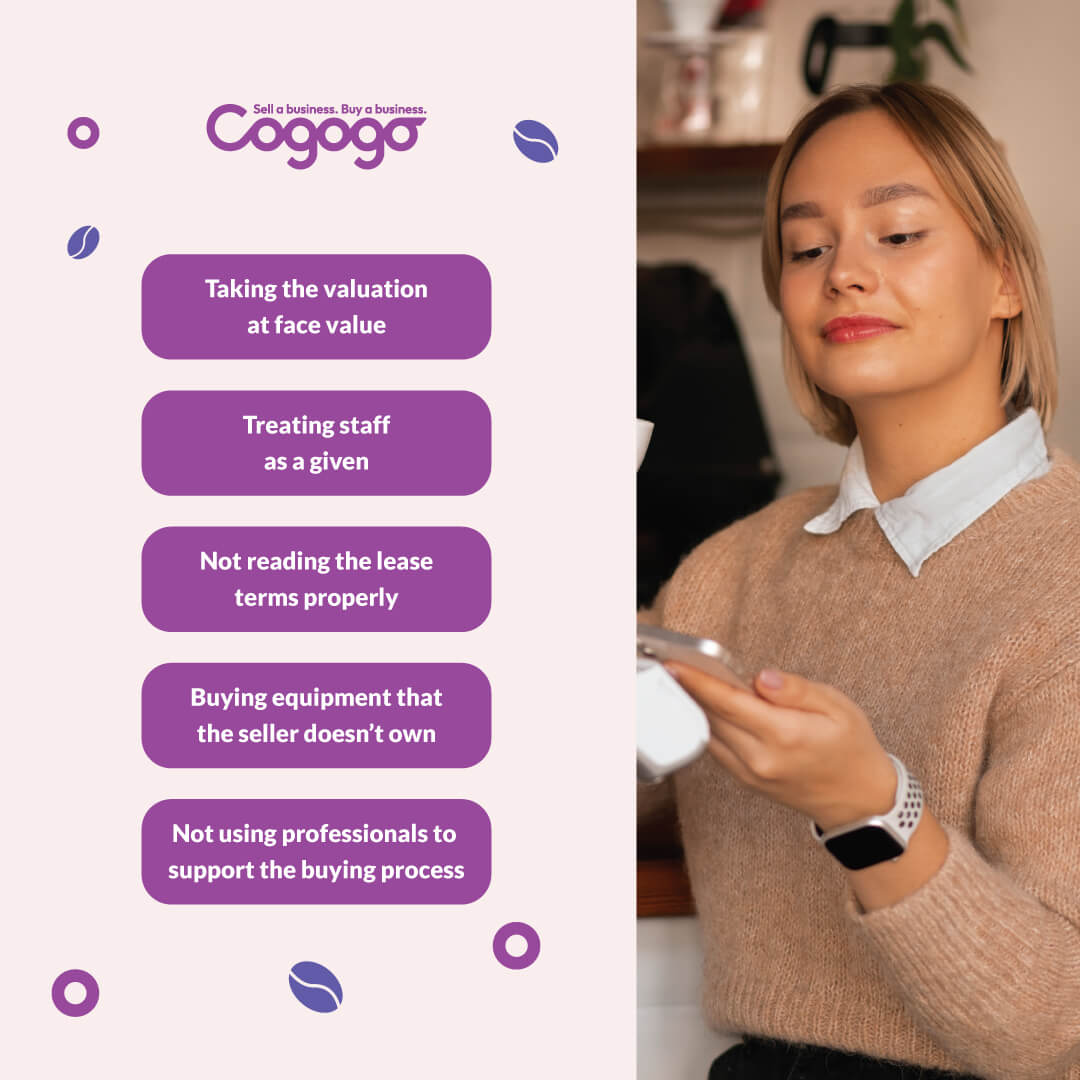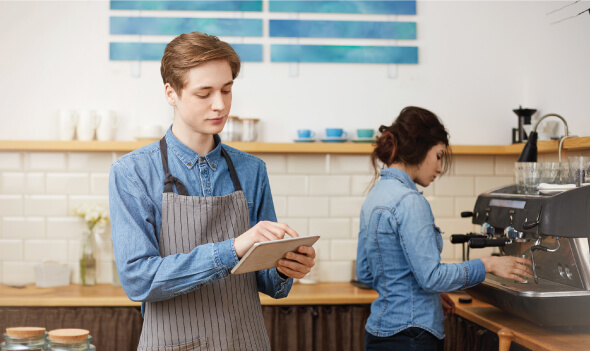Committing to starting your entrepreneurial journey is a watershed moment, and buying a café is a potentially lucrative venture. After all, Brits love their coffee, with an estimated 98 million cups of coffee drunk daily.
Your first obstacle is the process of buying a café business. It’s a process requiring due diligence and extensive research before you can even think about your menu or what colours you’re going to deck out the interior in.
To help ease you along, we’ve listed the top mistakes we see enthusiastic café owners make.
Why due diligence is so important when buying a business

You’ll hear a lot about due diligence when buying any business. Basically, it’s the process that verifies that what the seller says is true. It’s where you’ll crack open the books and look everything over to confirm that this is the café that will make a good fit for your goals. Without due diligence, you’re assuming.
Some of the issues you’ll look at include its:
- Finances
- Legal standing
- Licenses
- Operations
- Market position
It’s the longest part of the buying process for a good reason. In an industry with a projected turnover of £6.1 billion in 2024/2025 (and growing), there’s no shortage of nasty surprises that can derail you before you even start.
Due diligence stops you from making costly mistakes and putting your money at risk before you ever serve your first customer.
Find your Dream Cafe Business Today
The most common mistakes when buying a café business

Being bright-eyed and bushy-tailed is great for motivation, but it doesn’t lend itself well to avoiding the missteps all newbie entrepreneurs face. So, what are the most common mistakes you should be watching out for?
Taking the valuation at face value
Don’t rely solely on an agent’s summary of what a café business is worth. Call in an actual professional to look over the financial statements and dig into where the money is coming from. Examine issues like seasonal trends and eat-in vs. takeaway sales.
Business valuation experts are essential when purchasing a café because they enable you to know what a fair price for that particular business is.
Assuming licenses come with the business
Licenses are required in the UK for any café business. The premises license is the main one you’ll have to think about, but one thing many people forget is that they don’t automatically transfer on selling the business. You’ll have to work with the licensing authority to transfer it formally.
The same goes for other licenses you might need. For example, are you serving late-night hot food or alcohol? If you’ve got tables outside, you’ll also have to think about the pavement license. Every license has to be transferred. Factor the time and any costs into any eventual deal.
Treating staff as a given
Unlike licenses, staff do transfer to you when you take over. If you’re buying an operational café and plan on keeping the team in place, remember what they’ll bring with them. Get complete employee liability information and take into account the ongoing costs of labour when you take over on day one.
Moreover, check that there are no ongoing disputes with the business. Remember, you’re inheriting people and their problems as much as you’re inheriting a business.
Not reading the lease terms properly
If you’re buying the business but not the premises behind it, you’ll have to account for the lease. Lease clauses can wreck any too-good-to-be-true deal quickly, and, as always, caveat emptor if you don’t go through the lease properly.
Some of the aspects of a lease to focus on include:
- Assignment pre-conditions
- User clauses
- Maintenance obligations
- Rent review mechanics
- Break rights
- Overall length
Buying equipment that the seller doesn’t own
It’s not uncommon for cafes to lease equipment or get what they need on hire-purchase agreements. After all, high-quality grinders, display fridges and coffee machines are expensive. And don’t assume that the seller is going to disclose this information, or you could end up taking on extra liabilities you didn’t expect from the start.
Look at the fixed-asset register and confirm any outstanding loans against the serial numbers of each item.
Not using professionals to support the buying process
Proper due diligence isn’t something you can do by yourself unless you’re an expert. Investing in accountants, solicitors and business experts to carry out due diligence is essential because it provides you with deeper insights into what you’re looking at.
Working with an experienced business consultant who knows what to look for and can uncover the pitfalls that could trip you up before you even start. Remember, the obligation to conduct due diligence is on the buyer. All the seller has to do is provide you with the information. If you miss something, then it’s on you.

